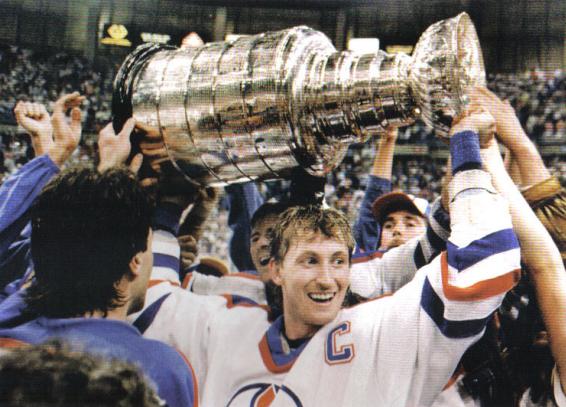Even the most casual of hockey fans know that Alexander Ovechkin is good. Along with Sidney Crosby, he has been the face of the NHL for the last decade. However, I don’t know if most people grasp exactly how dominant of a goalscorer Ovechkin has been in his NHL career.
Earlier in the year, I explained how Ovechkin is already the second greatest LW in the history of the sport behind Bobby Hull. The numbers used to back up that statement were created using the VsX method. A full explanation of the system can be found here, but at its core it assigns a score to each player’s season based on his point total.
The score is calculated using a benchmark (usually the 2nd place scorer that season), and dividing the player’s point total by the benchmark. The higher the score, the better. For example, the benchmark for 2014-15 was 2nd place scorer John Tavares with 86 points. 3rd place Sidney Crosby had 84 points, so he would be assigned a score of 97.7 (84/86).
This method allows us to compare players across eras by normalizing scoring level, team and league size, and schedule length. This same methodology can be applied to goals only instead of points. By doing this, we see just how dominant Alex Ovechkin has been.
Crunching the Numbers
Conventional wisdom with VsX uses seven years of scores (the average length of a player’s peak) to determine the better goalscorer. For fun, we’ll also look at scores over eleven seasons, the number of complete seasons that Ovechkin has played in his career.
The table below shows the six best goalscorers in NHL history based on VsX, over both seven and eleven seasons.
In this exercise, Ovechkin comes in sixth in both the seven and eleven year score. As I said, we knew that Ovechkin was good. But would anyone have said Ovechkin was the 6th most prolific goalscorer in NHL history? I doubt it.
The Teammate Effect

Five of the six players in the table above played their entire career on teams with multiple Hall-of-Famers as teammates. The only one that didn’t? Ovechkin. Nicklas Backstrom has the potential to become a Hall-of-Famer, but he has a lot more work to do in his career to reach that level.
The fact that Ovechkin has put up numbers of this level without any type of supporting cast is a testament to how good he really is as a goalscorer. Over seven years, Ovechkin is effectively equal with Gretzky in terms of goalscoring, less than 1% behind. Over eleven years, he is 7.2% behind.
At 30 years old, Ovechkin’s best years are almost assuredly behind him, but he will likely produce at least a few more productive seasons that will improve his 11 year total.
The Great One was known as being a better playmaker than a goalscorer, but he still has 93 more goals than anyone else in NHL history and led the league in goals five times. Then consider that Gretzky had three Hall of Famers in his direct supporting cast. Jari Kurri was patrolling his wing, Mark Messier played 2nd line center, and the second best offensive defenseman ever, Paul Coffey, was on the blueline.
Imagine giving Ovechkin one teammate of that quality, let alone three, and put him in a run-and-gun system like the Oilers ran. His seven year score absolutely eclipses Gretzky’s, and his eleven year score would definitely come very close.
The real surprise of this study is how impressive Bobby Hull’s totals look. During his career, he was known as a sniper with world-class speed and a booming shot. However, when most people think of the best goalscorer in history, they think of Gretzky.
Yes, Gretzky had the most goals in history, but he played in a perfect storm of conditions that allowed him to accumulate his totals. He played on one of the most talented teams ever, who ran a run-and-gun style, in the highest scoring era in the history of the sport.
By no means am I knocking Wayne Gretzky. I still believe he’s the greatest player ever. But is he the greatest goalscorer in history? I don’t think so.

